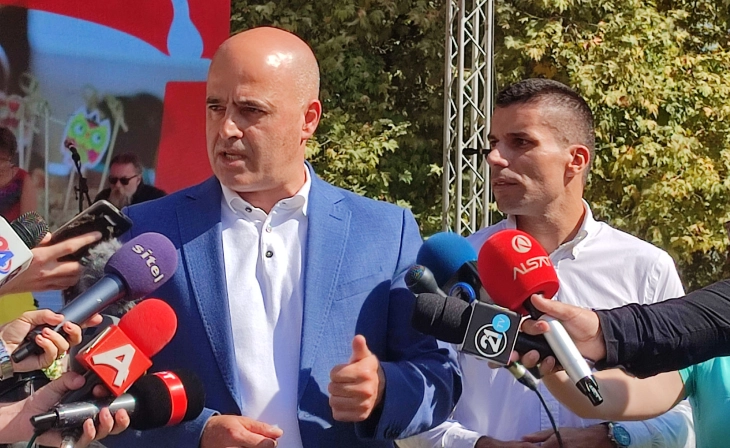On Saturday, Prime Minister Dimitar Kovachevski reaffirmed that the planned presidential and parliamentary elections will proceed as scheduled. However, he also emphasized that alternative courses of action are being considered if constitutional amendments are ratified, with a focus on advancing the country’s European integration goals.
Kovachevski stated during a press conference at Skopje’s City Park, which coincided with the Tradition National Food and Beverage Fair, “We have established legal frameworks for the election of the president, members of Parliament, and mayors, among others. The dates are clearly defined: May 12 for the presidential election and July 15 for the parliamentary election, in line with the MPs’ mandates. Nevertheless, the option remains on the table if constitutional amendments are passed, as this is a paramount concern in our pursuit of European integration.”
He pointed to recent statements from EU leaders, including Michel and Commissioner Várhelyi, as well as President Macron, signaling a dynamic approach to EU enlargement. Kovachevski emphasized that preparations are already underway to adapt to potential changes.
Kovachevski dismissed the possibility of convening another leaders’ meeting to address the election issue, stating, “We cannot substitute established institutions, as this would essentially mean abolishing the parliament, political parties, and relying on leaders’ meetings to discuss solutions that contravene legal procedures.” He recalled a previous leaders’ meeting where he proposed a solution to the opposition leader of VMRO-DPMNE, suggesting that if constitutional amendments are passed, the Parliament could be dissolved and elections scheduled on the same day. Alternatively, they could initiate the constitutional amendment process, accommodate VMRO-DPMNE’s request to join the government, complete the screening process, open chapters within the first cluster, and proceed with presidential and parliamentary elections, potentially achieving this by February.
In conclusion, Kovachevski underlined his belief that substituting institutions with meetings involving a handful of individuals, where discussions deviate from parliamentary and legal procedures, is not in line with the standards expected of a NATO member country and a nation engaged in EU negotiations.






Comments are closed for this post.